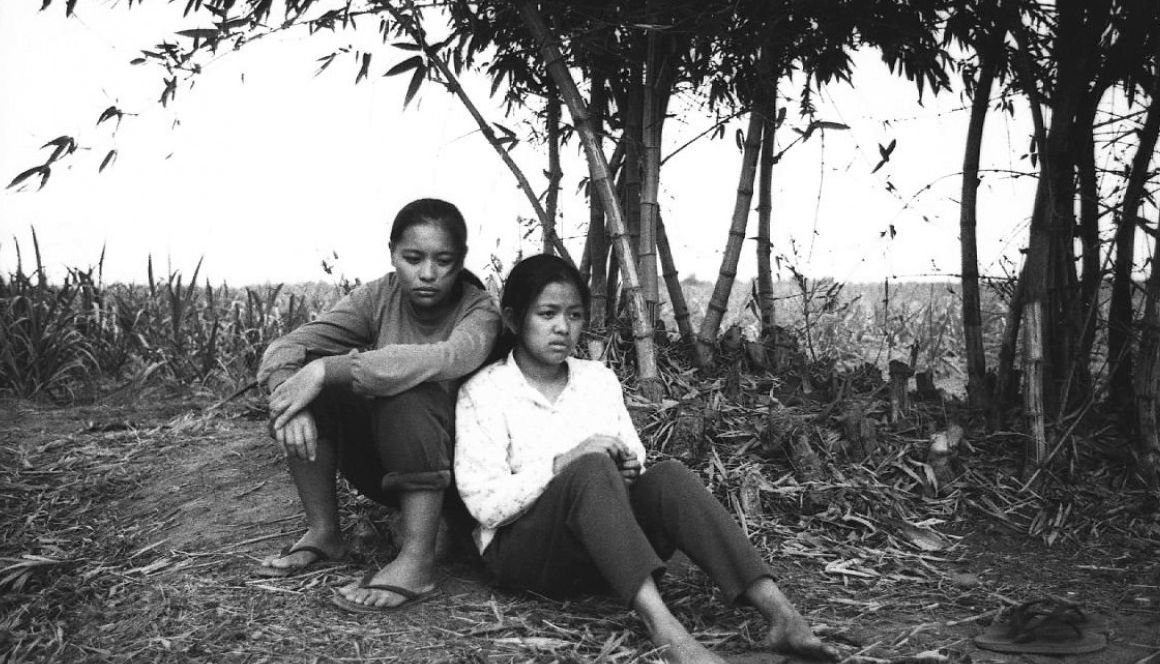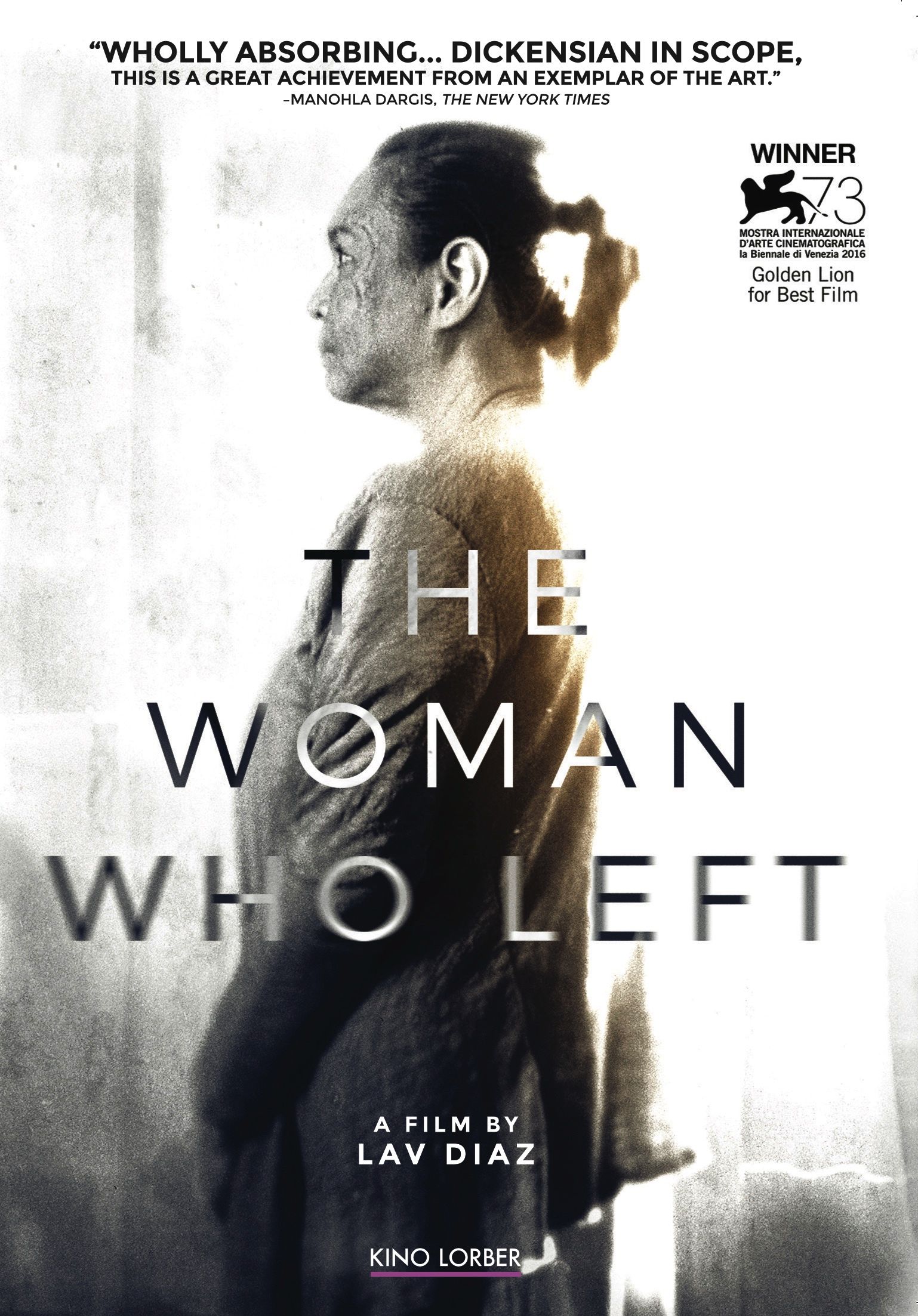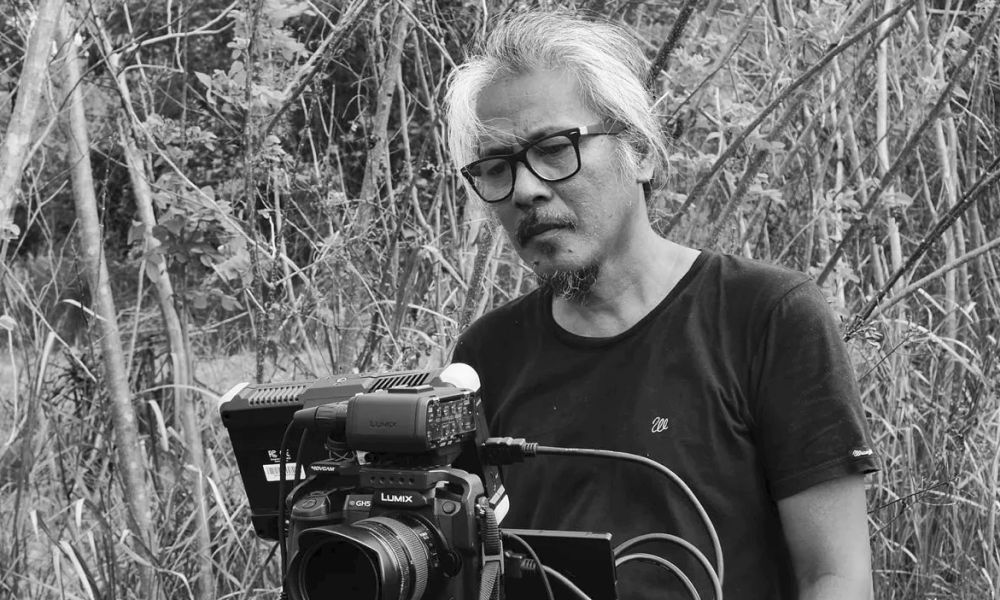"Lav Diaz describes himself as a storyteller who makes films about the struggles of his people. In the past two decades, the Filipino film-maker has been fashioning a distinctive mode of epic melodrama. His films tell quiet tales of the sorrow and resilience of a people betrayed by the postcolonial nation state. Extreme in duration, Diaz’s epics reference the Philippine state as a force of death — a state that has, since its independence in 1946, consistently turned against its own people." - May Adadol Ingawanij (Afterall, 2015)
Lav Diaz
Director / Screenwriter / Editor / Cinematographer / Producer / Composer / Production Designer
(1958- ) Born December 30, Datu Paglas, Maguindanao, Mindanao, Philippines
21st Century's Top 100 Directors
(1958- ) Born December 30, Datu Paglas, Maguindanao, Mindanao, Philippines
21st Century's Top 100 Directors
Key Production Countries: Philippines
Key Genres: Drama, Psychological Drama, Crime Drama, Family Drama, Mystery, Musical
Key Collaborators: Hazel Orencio (Leading Character Actress), Angel Aquino (Leading Character Actress), Bart Guingona (Character Actor), Perry Dizon (Leading Actor), Roeder Camanag (Leading Actor), Ronnie Lazaro (Leading Character Actor), Angeli Bayani (Leading Actress), Larry Manda (Cinematographer), Dante Perez (Production Designer), Soliman Cruz (Character Actor), Joel Saracho (Character Actor), Piolo Pascual (Leading Actor)
Key Genres: Drama, Psychological Drama, Crime Drama, Family Drama, Mystery, Musical
Key Collaborators: Hazel Orencio (Leading Character Actress), Angel Aquino (Leading Character Actress), Bart Guingona (Character Actor), Perry Dizon (Leading Actor), Roeder Camanag (Leading Actor), Ronnie Lazaro (Leading Character Actor), Angeli Bayani (Leading Actress), Larry Manda (Cinematographer), Dante Perez (Production Designer), Soliman Cruz (Character Actor), Joel Saracho (Character Actor), Piolo Pascual (Leading Actor)
"Lavrente Indico Diaz or Lav Diaz, as he is known, is a filmmaker from the Philippines and one of the most famous names on the international film festival circuit… He is a director, writer, producer, editor, cinematographer, poet, composer, production designer and actor. He is most famous for the notable length of his films, some of which run for up to 11 hours. He has directed films since 1998’s The Criminal of Barrio Concepcion. His breakthrough film was 2013’s Norte, The End of History, which is a reimagining of Crime and Punishment that screened at the Cannes Film Festival.." - Asia Pacific Screen Awards
"It is indisputable that Diaz is talented. He has an innate ability of sustaining even the most stubborn of interests with just one unmoving and monochromatic image. Take any of the staggered shots in any of his post-Batang West Side films, where depth, detail, and drama are encompassed with economy of aesthetics, and one would immediately notice that Diaz’s reflexes as a filmmaker are not bound by the limitations of what can be captured onscreen. Perhaps what drives Diaz’s cinema to go beyond the cursory demands of why cinema was invented in the first place, is his faith in it, that cinema is not twenty-four lies per second, as Jean-Luc Godard would put it, but is actually twenty-four or more not-so-convenient truths per second. If Diaz’s faith in cinema is unburdened by cynicism, why then can’t he demand the same faith from his audience? Truth be told, Diaz’s film may be bleak and therefore taxing to Hollywood-fed sensibilities, but the reward of not just sitting through his cinema, but taking part in his cinema, is priceless." - Francisco Joseph A. Cruz, The John Simon Guggenheim Memorial Foundation

Evolution of a Filipino Family (2004)
"Although Diaz's most celebrated film, Norte, the End of History is shot in color, most of Diaz's films are shot in a glittering, detailed digital black and white. Diaz tends to feature few close-ups, locking down his camera near a gorgeous and forbidding natural vistas and letting shots linger for 10 to 15 minutes. Into these natural vistas, we may see a single human quietly enter, so inhabiting the background as to become part of it. Humanity is just as much a part of gorgeous and forbidding natural landscapes at the dirt and the trees." - Witney Seibold (Slash Film, 2022)
"At their best, Lav Diaz’s films reveal just how much others leave out. Their protean beauty and moral complexities are matched only by their heroic running times: six hours is a common length, nine hours to be expected. They combine a devout belief in the power of bearing witness to the ebb and flow of quotidian moments with a poetic sense of historical time, the massive and warring abstract forces (governmental, societal, philosophical, spiritual) that conspire to shape daily life." - Film at Lincoln Center, 2015
"Digital or celluloid, cinema is ultimately a medium made of time. Andrei Tarkovsky famously called it “sculpting in time.” While directors like Lanzmann and Tarr have in recent decades been working to extend the length of the feature film, the turn to recording images digitally has greatly expanded cinema’s ability to experiment with duration. The contemporary filmmaker who has taken this expansion the farthest is certainly Lav Diaz. He has become famous over the last decade for his works lasting six, seven and eleven hours, almost always shot in black-and-white in small towns and the countryside of the Philippines… With his twinned desires to bear witness to Filipino lives and to demand a better future, Diaz follows in the footsteps of Lino Brocka (1939-91), one of the first Filipino filmmakers whose work was seen internationally, and one whose work was both eloquent about the joys and indignant about the sorrows of life in the Philippines." - Harvard Film Archive, 2015
"I consider making films a privilege. But the issue of having this privilege is hard earned on my part. I faced and experienced deep, deep fractures and struggles to be able to reach a point where I can actually make films, and really have total creative control. That’s why my relationship with the medium is earnestly visceral and spiritual; it is body and soul. I don’t take cinema for granted. I am committed to it. That commitment is joy." - Lav Diaz (Internationales Filmfestival Mannheim-Heidelberg)
Selected Filmography
{{row.titlelong}}
GF Greatest Films ranking (★ Top 1000 ● Top 2500)
21C 21st Century ranking (☆ Top 1000)
T TSPDT R Jonathan Rosenbaum
21C 21st Century ranking (☆ Top 1000)
T TSPDT R Jonathan Rosenbaum
Lav Diaz / Favourite Films
Beau travail (1999) Claire Denis, Bicycle Thieves (1948) Vittorio De Sica, Mirror (1975) Andrei Tarkovsky, Our Daily Bread (1970) Mani Kaul, The Time to Live and the Time to Die (1985) Hou Hsiao-hsien, Une Femme douce (1969) Robert Bresson.
Source: Long Voyage Home (2020)
Beau travail (1999) Claire Denis, Bicycle Thieves (1948) Vittorio De Sica, Mirror (1975) Andrei Tarkovsky, Our Daily Bread (1970) Mani Kaul, The Time to Live and the Time to Die (1985) Hou Hsiao-hsien, Une Femme douce (1969) Robert Bresson.
Source: Long Voyage Home (2020)
Lav Diaz / Fan Club
Noel Vera, Cristina Nord, Paolo Bertolin, Andrew Šprah, May Adadol Ingawanij, Jorge García, John Gianvito, Jean-Michel Frodon, Marko Grba Singh, Julian Ross, Ferronian Brigade, Kong Rithdee.
Noel Vera, Cristina Nord, Paolo Bertolin, Andrew Šprah, May Adadol Ingawanij, Jorge García, John Gianvito, Jean-Michel Frodon, Marko Grba Singh, Julian Ross, Ferronian Brigade, Kong Rithdee.
"Fan Club"
These film critics/filmmakers have, on multiple occasions, selected this director’s work within film ballots/lists that they have submitted.
These film critics/filmmakers have, on multiple occasions, selected this director’s work within film ballots/lists that they have submitted.


